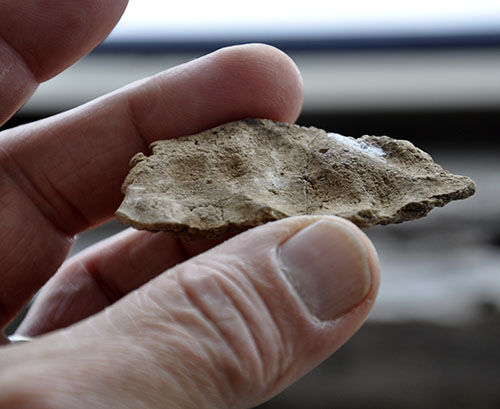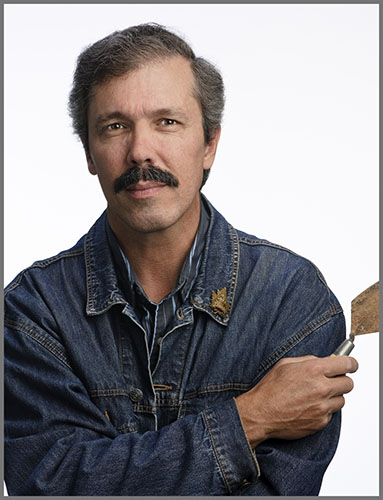Jean-Luc Pilon (Curator of Central Archaeology at the Canadian Museum of History), Ottawa

The gift of time travel
In the summer of 1982, I was carrying out archaeological research near the shores of Hudson Bay on the Severn River. One of the sites we were investigating had been used a number of times. The earliest evidence suggested that people camped at the Ouabouche site before Europeans had come to their country, a time when many tools were made of chipped stone. The most recent stay was no older than the early 20th century, when all kinds of Euro-Canadian goods were part of the daily lives of the people.
One such item was the tin stove used inside canvas tents. To prevent the stove bottom from being damaged by the heat, a layer of sand was added to the inside and when people left the camp, they left behind a small pile of sand. We found just such a flattened pile of sand and in it were lumps of clay that had been hardened by exposure to fire. They seemed shapeless. Later, back at the university, I found pieces that could be refit, and I noticed small depressions on the surface of the elongated piece of hard clay. Carefully placing the tips of my fingers in these, I realized that a small hand had shaped the piece and baked it on a stove. A young person had played with this lump of clay, perhaps copying their mother’s gestures as she made bannock for the family. For that brief moment, as I held my hand just as that young person had, I travelled in time and heard the crackling stove, felt its warmth and smelled the delicious aroma of bannock filling the tent. This is the gift of time travel that archaeology offers.
Photos courtesy of Jean-Luc Pilon
This story's themes
Photo Gallery
-

Jean-Luc Pilon
Most viewed themes

